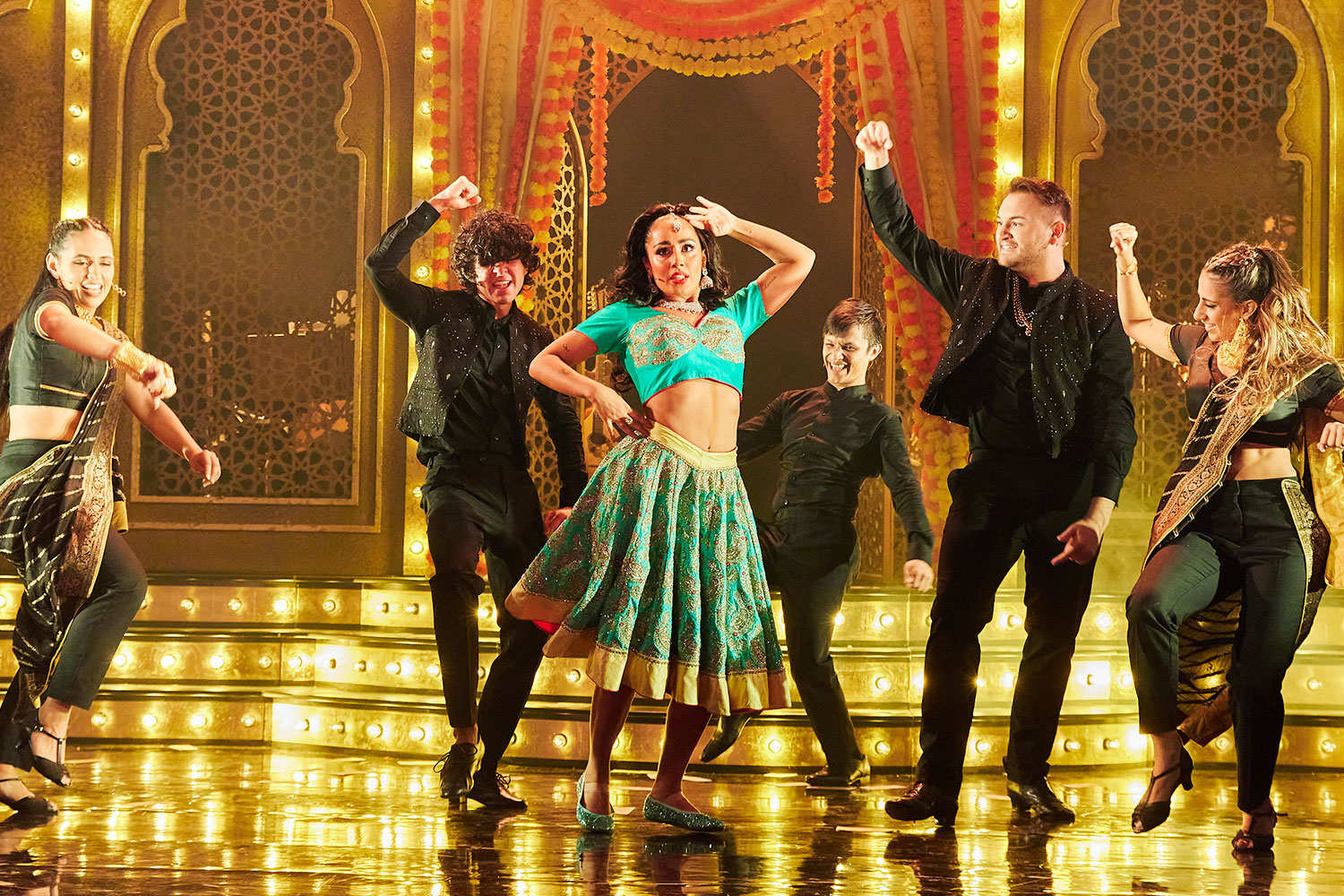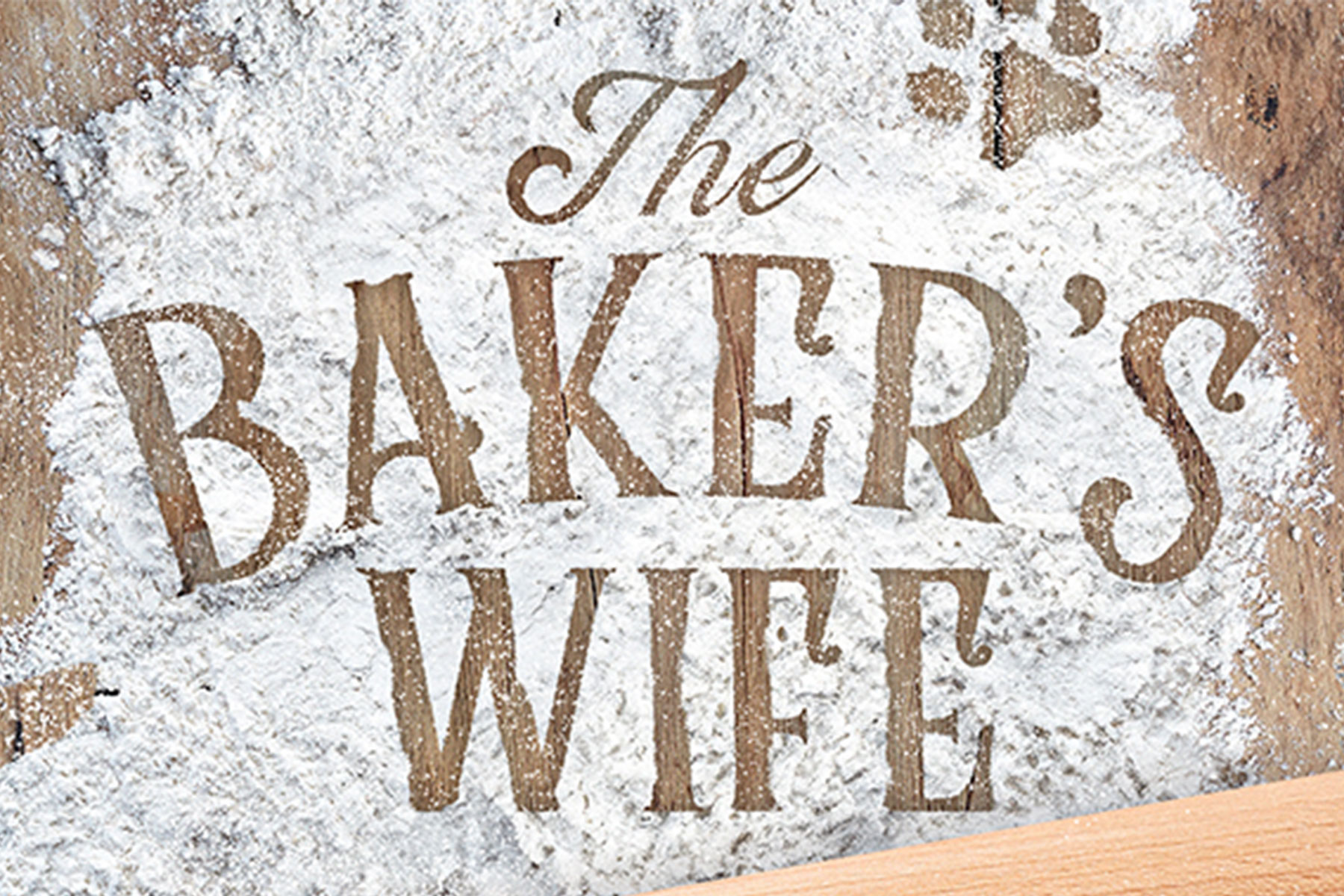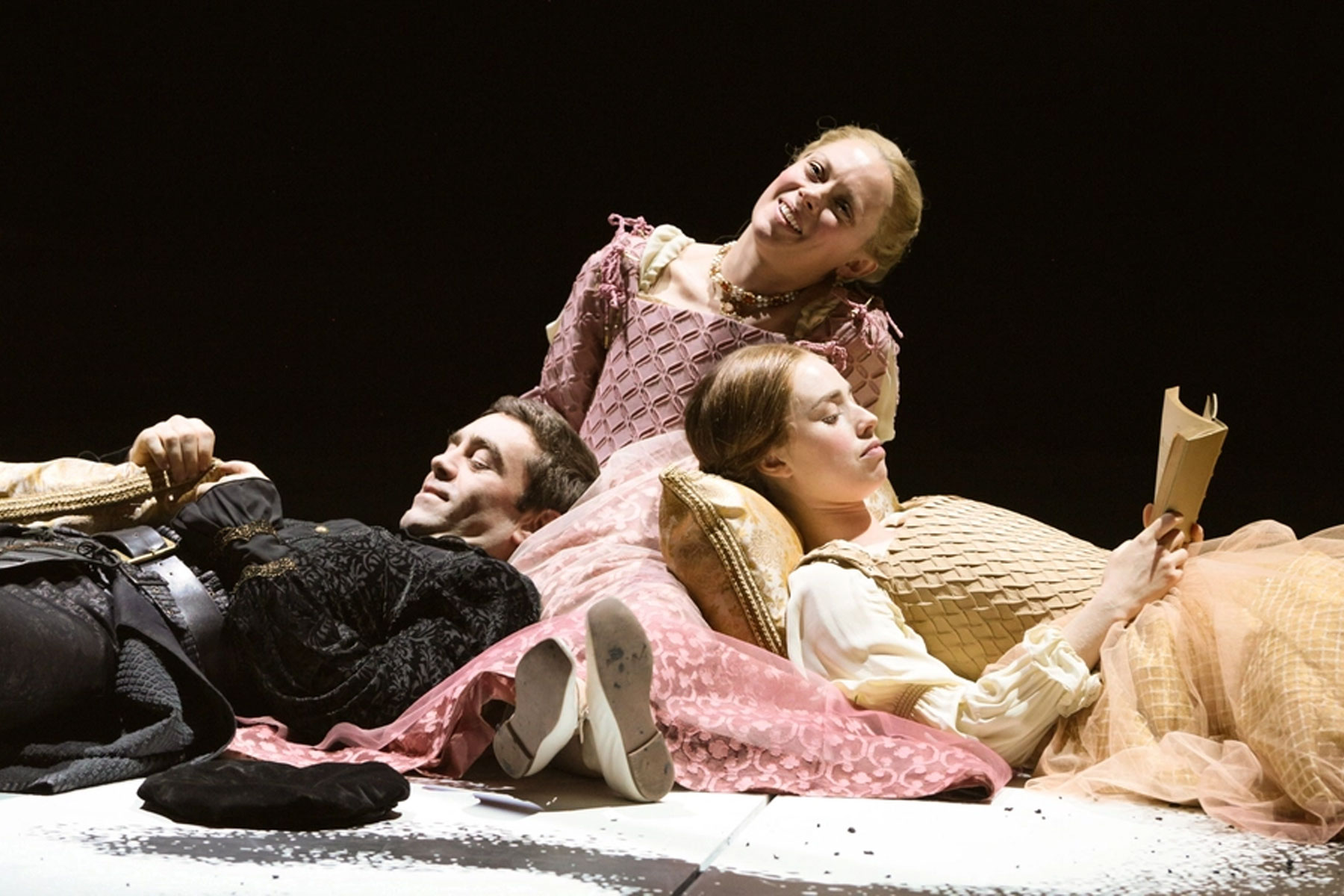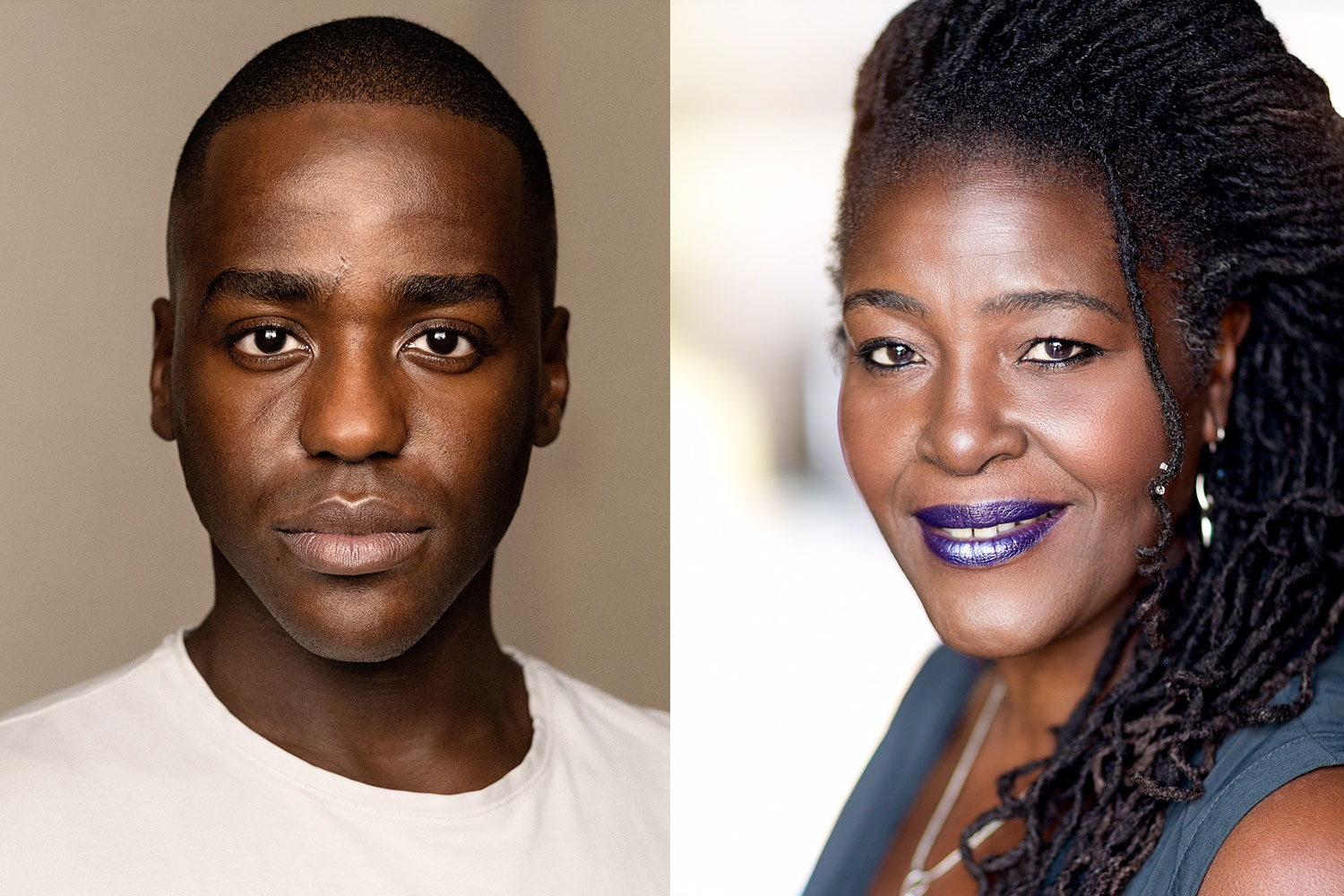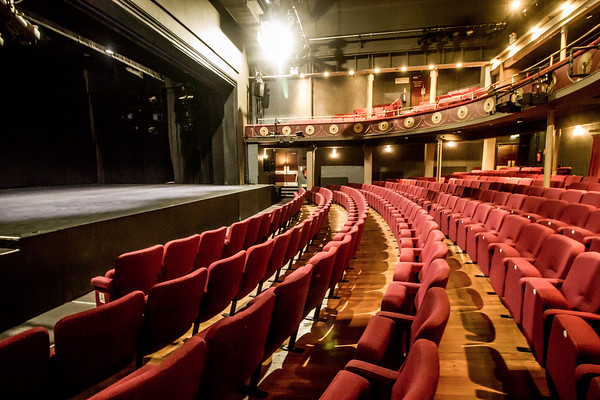The 47th at the Old Vic – review
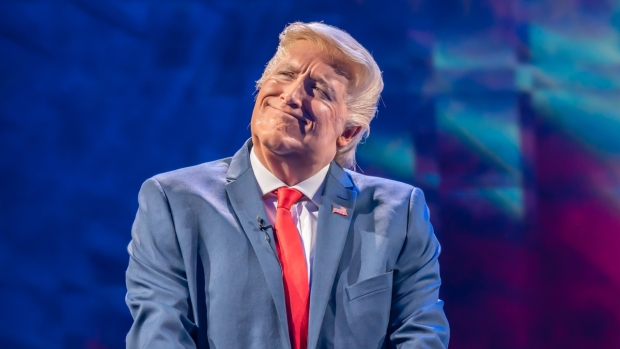
© Marc Brenner
No one could accuse Mike Bartlett of a lack of ambition. Seven years ago he wrote King Charles III, imagining a new abdication crisis for the monarchy, couched in Shakespearean blank verse. Now he's taking on Donald Trump, the US Constitution and the dangers to democracy, also in blank verse. The references to Shakespeare's history plays are even more clear.
Again directed by Rupert Goold, and designed by Miriam Buether as a circular arena for competing factions, the result is fitfully brilliant and always utterly, utterly gripping, illuminated and irradiated by a central performance from Bertie Carvel that brings the 45th president to life with uncanny comic and chilling accuracy.
Yet it's the serious imaginative heft of Bartlett's writing that is most thrilling. The man who achieved wider theme with Doctor Foster is remarkably theatrically prolific at the moment; he has three plays on in the West End. But here he takes on the biggest of themes, and if not every scene absolutely keeps the energy of the best moments, I know that I will think about this play for a long time, just as I have found myself remembering King Charles III as the story of the Windsors has unfolded.
The conceit of The 47th is that it starts after Trump's "four years of lonely exile", as the primaries are about to anoint a new Republican candidate to take on President Biden in the 2024 election. It begins with a very deliberate echo of Richard III, as Trump drives onto the stage in a golf buggy, takes an age to miss a putt, and then steps forward to take the audience into his confidence. "I know, I know. You hate me. So much right?"
Carvel is uncanny. It's not just that he is almost unrecognisable in wig and makeup. It's that he has caught each of Trump's mannerisms so precisely: the hunched stance, the hand gestures, the shrewd eyes, darting this way and that, weighing up his advantage. What's more, he takes the familiar figure beyond impersonation and into a performance, finding the strange mix of childish narcissism and political calculation that – in this version of his life at least – makes up Trump's soul.
In the first act, Trump, with his appointed heir (and vice president) Ivanka (calculating, clever and superbly embodied by Lydia Wilson) does the dirty on Ted Cruz (sleazily depicted by James Garnon) and, with the help of his impassioned supporters, steals the Republican nomination for himself. Meanwhile, doddery Biden (Simon Williams) stands down to make his vice president Kamala Harris (Tamara Tunie) both the 47th president and the Democratic candidate to face Trump in the election.
It's often broadly funny, with the Trump family (Oscar Lloyd nervous as Donald Jr, Freddie Meredith sad and lost as Eric) held up to sharp caricature. But Shakespeare peppers the broadly comedic sweep: there are direct liftings from King Lear, Julius Caesar and Macbeth. As the play tips further into predictive fantasy, though, the mood darkens, and Trump's supporters threaten the very fabric of society.
It's then that the way in which it is shaped by the history plays is most fully revealed. Like Shakespeare, Bartlett is interested in the central question of what makes a good free society, in the tension between autocracy and liberty, in the key underpinnings of the state, the compromises imposed by power, the dangers of the mob.
The debate that unfolds is both fascinating and frightening, given more weight by the blank verse. There are missteps Goold's lively production (it's slightly difficult to feel terrified of a mob that communicates in a shamanic creative dance routine) but under Neil Austin's mood shaping lighting (a great circular tube of fluorescent that switches from white to red to antiseptic peppermint) and with the help of Ash J Woodward's video projections, it cleverly and vibrantly switches from place to place. A sub-plot about a reporter and his sister who find themselves on different sides of the argument doesn't entirely work.
But when Trump faces down Tunie's calmly impassioned Harris, striving to cling to her own values as she faces down the threat to democracy itself, the play takes sensational flight. She matches the intensity of Carvel's performance every step of the way. In one scene, he suggests why he will succeed, and liberal values will always fail; she opposes him with a defence of all that civil rights has won, arguing against the dangers of his "despotic hands." The writing shimmers with power: it's an analysis of Putin and every autocratic ruler, as much as the present dangers in the United States.
It's this central argument, presented with forensic care that makes The 47th pack such a knockout punch. And Carvel's Trump, darkly ferocious, gives it its villainous heart.







